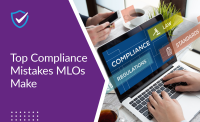How Often Do You Need to Renew a Mortgage License?

If you’re a mortgage loan originator (MLO), staying licensed is essential to your career. Part of maintaining that license involves periodic renewals to ensure you stay compliant with state and federal regulations. In this article, we’ll explore how often you need to renew your mortgage license and the steps involved to keep your license active.
Annual Renewal Requirements
Mortgage loan originators are generally required to renew their licenses every year. Most states follow an annual renewal cycle, with the deadline typically set at December 31st. Missing the renewal deadline can lead to penalties, and in some cases, it could result in your license becoming inactive, which would prevent you from originating loans.
Nationwide Licensing System (NMLS) Requirements
The renewal process for MLOs is managed through the Nationwide Multistate Licensing System & Registry (NMLS). Regardless of which state(s) you are licensed in, you’ll need to renew your license via the NMLS platform each year. This system ensures uniformity across states and simplifies the renewal process by providing a central place for managing your license.
State-Specific Renewal Rules
While most states follow the standard annual renewal deadline, some states may have specific rules or earlier deadlines. For instance, a few states may require you to complete additional education or meet different renewal timelines. It’s important to check with your state’s licensing authority or review the state’s renewal guidelines on the NMLS website to avoid missing any special requirements.
Continuing Education: A Key Component of Renewal
A critical part of the license renewal process is completing your continuing education (CE) requirements. Each year, MLOs are generally required to complete 8 hours of NMLS-approved continuing education. These hours must be completed before submitting your renewal application and typically include:
- 3 hours of federal law and regulations
- 2 hours of ethics (including fraud and consumer protection)
- 2 hours of non-traditional mortgage lending
- 1 hour of elective coursework (often state-specific)
What Happens If You Don’t Renew on Time?
If you miss the renewal deadline, your license may become inactive. This means you won’t be able to originate loans until your license is renewed. Additionally, many states impose late fees or penalties for missing the deadline. In some cases, if a significant amount of time passes without renewal, you may need to go through a reapplication process, which could include retaking exams and submitting new background checks.
Steps to Renew Your Mortgage License
To ensure a smooth renewal process, follow these steps:
- Complete Your Continuing Education: Ensure your required 8 hours of continuing education are completed well before the December 31st deadline. Be sure to take the courses from an NMLS approved education provider such as Career Classroom.
- Update Information in the NMLS: Log in to your NMLS account and update any necessary personal or business information.
- Submit Your Renewal Application: Complete and submit your renewal application through the NMLS system.
- Pay the Required Fees: Renewal fees vary by state, so be sure to check your state’s specific fee requirements.
- Monitor the Status of Your License: Once submitted, regularly check your NMLS account for updates on the status of your renewal.
Conclusion
In most states, mortgage loan originators must renew their licenses annually, with the standard deadline being December 31st. Completing your continuing education on time and submitting your renewal application through NMLS will ensure that you remain compliant and can continue originating loans without interruption. Staying on top of these requirements will keep your career on track and ensure you’re up to date with industry standards.
You Might Also Like
Join Our Newsletter
Get the latest updates delivered right to your inbox









